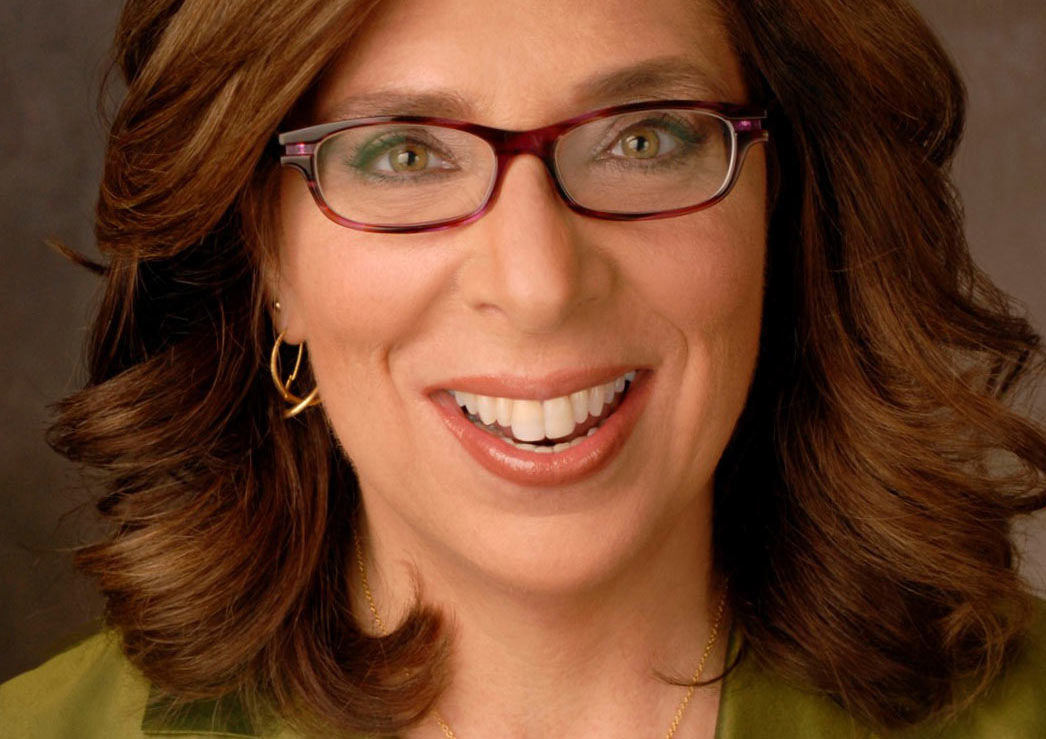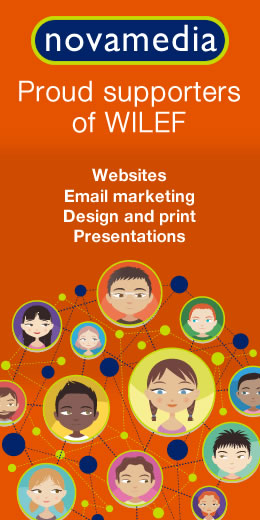There may be no hotter entertainment network right now than Showtime. Thanks to hits like “Billions,” “Homeland” and “Shameless,” it has grown its streaming subscriber base to 1.5 million according to a report on Variety.com, a major feat in the cord-cutting era.
Playing an integral role in the network’s success has been Gwen Marcus, who serves as executive vice president and general counsel, overseeing the company’s myriad legal affairs, including its programming and distribution transactions, intellectual property, compliance, litigation and regulatory issues. She recently spoke to The WILEF Tribune about her path to show business, the legal industry’s diversity challenges and her favorite shows.
I read you’re a big fan of the theatre. How did that come about?
I absolutely love the theater, and it started when I was knee high to a bullfrog. My mother very much was a culture vulture. She schlepped me to operas and museums and ballets. I must tell you, nothing stuck until I went to my first Broadway performances—the original productions of “Oliver” and “My Fair Lady.” Not the original casts—just the original productions—I’m not that old!)
I remember loving it. I don’t remember not liking anything else—that’s family lore. But whatever it was, theatre took hold and I then took drama classes and directed school plays.
Did you have dreams of being an actor or singer?
Absolutely not. I think one of my assets is self-awareness. I knew I didn’t have the talent or the fortitude to do that or spend a good many years waiting on tables.
Instead, I decided from a very early age I wanted to work in the entertainment business, which I knew was much broader than just theatre. I would go to the office with my father as often as I could because I very much admired him. He was a lawyer who didn’t practice law but understood the wonderful background, great training that law school would provide for any career.
One day when I went to his office—I was about all of 10 years old—I pointed to the building next to his, the Warner Communications building, and said to him, “Dad, one day I am going to work in that building.” He said, “Since you are a girl there are two ways to do that.” Remember this was the sixties. It was a more sexist time. “One, you could go in as a lawyer, and then you will be looked at with sufficient respect so could make any transition within the industry you want. Or, you can go in at an entry level position but they may never see you as anything else.”
Do you remember any women who either inspired you or taught you a lot early on in your career?
Interesting question. I was at Paul Weiss for the first three years of my career and we did not have any women partners in the entertainment department where I was. There was only one woman partner at the entire firm during that era.
In the entertainment department, there was a senior associate who was a woman who trained everybody, trained all the young women associates, trained all the young men associates, including a young male whippersnapper who then got promoted to partner. So, she ended up working for him when she was the one who trained him. That was sort of typical of the era back then.
But in terms of women generally, I can tell you there have been others from whom I have learned a tremendous amount, including my better half, Nancy Alpert, who taught me something invaluable. And that is to appreciate what I am good at. I would always think that whatever I am good at, everyone is good at. After all, if I’m good at it, how hard could it be?
And I would always marvel at other people’s strengths because they were not necessarily my own and she would say, “But you are so good at xyz. Not everybody can do that.” I started realizing she was absolutely correct.
What’s one misconception people have about being an entertainment lawyer?
It’s not all glitz and glitter and red carpets. I’m a lawyer and I lawyer for a living, which I happen to love.
I guess one of the other misconceptions people might have is that it is all talent deals. It’s much broader than that. For example, we also have agreements with motion picture studios for theatrical movies, cable operators, others, and obviously, we have various disputes, including copyright or piracy matters.
What are the most important skills for somebody in your role?
I think what has been critical to how I do my job are things like emotional IQ, knowing how to communicate and tailor that communication to the audience; a good bedside manner; a sense of humor. Sometimes I’m a shrink, sometimes I am a casting director.
Do you draw a parallel between the performing arts and your job?
Absolutely. It is how you present yourself. It’s not fair, but often how women lawyers give advice is as important if not more so than what that advice is. And depending on how it’s heard, it can sound to some people as nagging because of sexism. I think it is very important to be able to relate to people in a way that they don’t see you as a naysayer or schoolmarmish. It is an unfair extra burden, but I think women lawyers have to think about that.
What advice would you give someone today looking to getting a job like yours? How is the path different today?
I think there are more opportunities today. I don’t think the same advice that I got from my father holds true. People absolutely advance through the ranks no matter what their degree is. And obviously in this day and age, when people create businesses out of their garages, I don’t think college or other degrees are particularly necessary.
I do think it is important that you bring something special to the table if you want to be an entertainment lawyer. It is such a popular field that I receive countless stacks of resumes that all look the same. You have to have that something special that makes your resume stand out. So, either because you volunteered for something like Volunteer Lawyers for the Arts or you were, for example, a filmmaker in a prior life, or you did something special in the performing arts, your commitment to this field will help distinguish you.
How would you characterize the progress big law firms have made in promoting women and diversity since the beginning of your career?
The good news is the firms realize there is a problem. When I was at a law firm in the early eighties, maybe they knew on some level, but it wasn’t spoken about and it wasn’t on the agenda as a priority to be addressed. So, that awareness is an important first step. Having said that, I do think progress has been a little glacial as obviously there are many fewer women partners and women in management than men.
There are a handful of firms that are actually led by female chairs. In terms of getting more women in the equity partnership ranks, I think firms have to be far more flexible in terms of young parents. The economic model of Big Law these days needs some adjusting.
I’ve made this point at WILEF meetings: who in their right mind would want to sign up for a situation where they are working morning, noon and night, seven days a week? It is not only incompatible with being a young parent, it is incompatible with having a well-rounded happy life.
How do you see your role in promoting women and diversity? Do you feel any special responsibility to hire women or to make sure that your matters are staffed with women?
All of the above. I not only hire women, I give them discrete areas of responsibility that they oversee. We have two women senior vice president lawyers who work in our small department.
In terms of hiring outside lawyers, I absolutely pay attention to who is on the team. Our survey digs deeper than the usual diversity questionnaire that firms receive. So, it is not just what percentage of equity partners are women? It is: how is your management committee comprised? How is your compensation committee comprised?
One anecdote just blows my mind. We had an employment matter where we were taking pitches by competing employment law firms. One firm sent the bios of the proposed team before the first actual meeting. We said, “Gee, this looks like a rather non-diverse group of people. It is all seemingly straight white males.”
At Showtime or at CBS, that won’t work. Their first response was, “Well we had a woman equity partner, but she retired.”
Oh no.
Right, exactly. As if that was an adequate response. So, they said, “Okay we’re going to bring a diverse team and we are going to tell you how we propose to staff this matter.” So, they came in and sure enough it was all white men except one junior associate who was a woman—who was not allowed to speak!
I take it they didn’t get the matter.
Not only did they not get the matter, it was important that we told them why they didn’t get the matter.
Let’s end on a lighter note. What should I be watching on Showtime? In other words, what are your favorite shows?
I must tell you, of all the questions we have discussed, that is absolutely the hardest—because we have so many great shows! I’m going to tell you my favorites by genre. For a drama: “Homeland.” I think this season is yet again eerily prescient. It foreshadows accurately what happens in real life six months later. I don’t know how they do it, but it’s fabulous.
In terms of comedy, our show that is a send-up of our industry is hilarious. It’s called “Episodes.” And in terms of a documentary series, I would say our show “The Circus,”—the first season was about the crazy presidential election we just lived through. It is coming back to our air later this month, and looks at the first 100 days of this administration.



